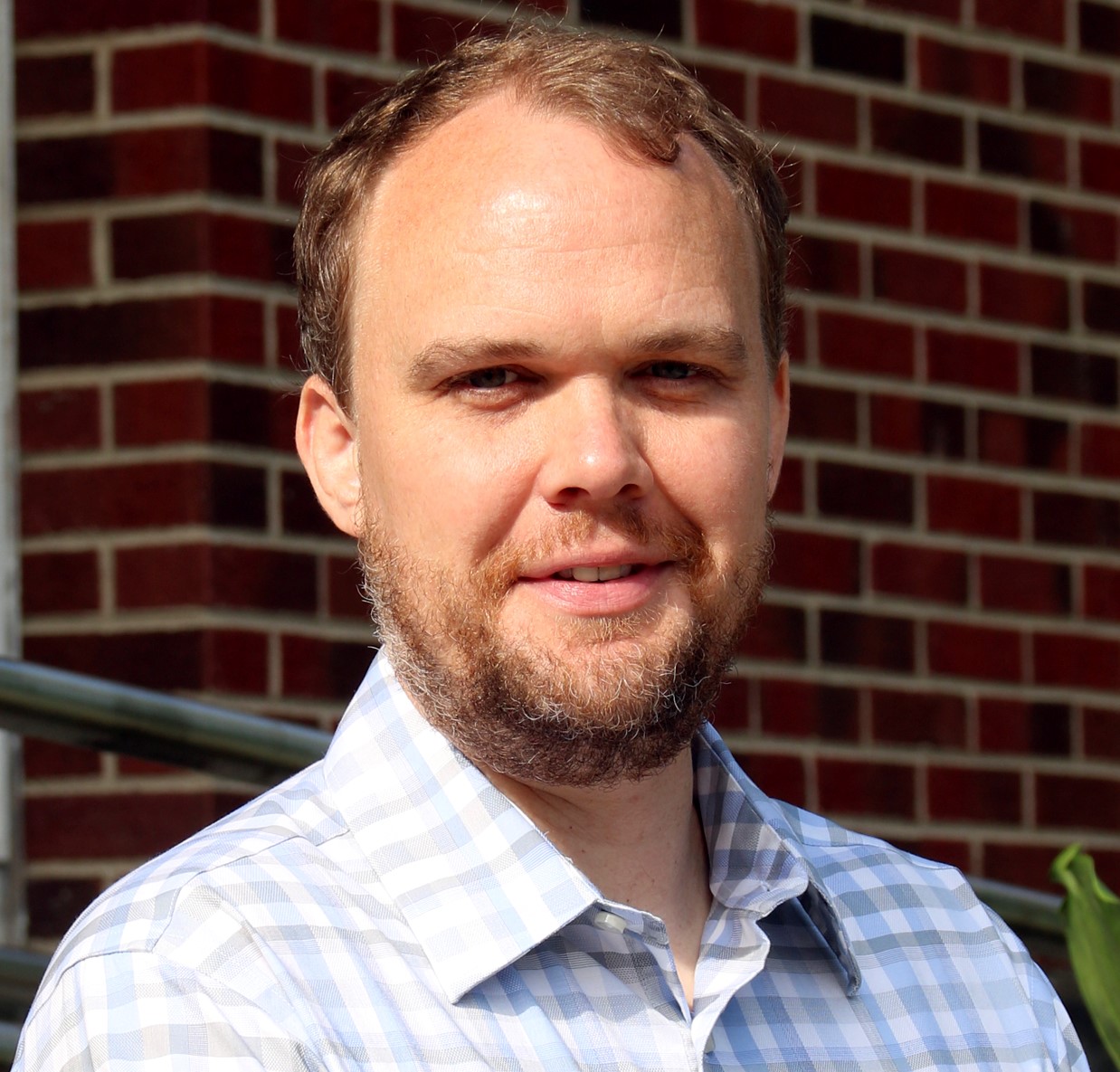Adding to the conversation
New 'Grindstone' podcast designed to bring philosophy to new audiences

Matthew Kroll likes to joke with his philosophy students about the olden days where he would accompany his father to a brick-and-mortar bank.
“You would have to walk into a bank and speak with a person and take out checks and give them cash. Now that’s all done online,” Kroll said. “You can scan a check with your phone and that’s it.”
The postdoctoral research associate sees a similar technical revolution occurring in education, which is one reason why he pushed to launch a new podcast, “The Grindstone,” for the Department of Philosophy. Because today’s college students are much more tech-savvy than previous generations – and because of the specific popularity of the podcasting medium – Kroll believes it can be a useful way to engage a new audience in philosophical conversation.
“I believe that this is part of the changing landscape of university education in the 21st century,” said Kroll, who completed a Ph.D. at Purdue last year. “One of the ways you can attract people to study philosophy and maybe major or minor in philosophy is by diversifying the way you present the material. I don’t think that necessarily has to be in terms of online courses. I get the push for that, but I think there are things you can do other than canning an online course.
“I think we can present our stuff in different forms of media, in social media, and that can become a hook for people to then come see what we do at a public lecture, in a classroom.”
Another motivating factor for Kroll was his personal affinity for the medium, as his own podcast queue features a variety of topics ranging from national news to comedy to sustainability to his beloved Chicago Bears.
Each full-length episode of “The Grindstone” follows the same general format. Over the course of a conversation that typically lasts about 45 minutes, Kroll starts with the intention of covering three objectives with his guest.
“No. 1, how did you come to study philosophy? Share that story,” Kroll said. “No. 2, where are you now? What are you doing? What’s your title? What’s your role? What is your field? And then third, we say, ‘OK, you’re interested in ethics. Well, let’s apply something that you’ve worked on or studied to the ethics of social media’ or something like that. So we try to find something that’s in contemporary culture – pop culture, broadly speaking. The idea is that we’d talk about a book, a film, a recent event – political event or news event – but the conversations are very organic and we just follow them where they go.”
On occasion, he will also post shorter episodes featuring departmental highlights like colloquium speakers and possibly featuring shorter interview segments.
With help from producer Reyes Espinoza, a philosophy graduate student, Kroll has already recorded a half-dozen episodes: one departmental highlights episode and five full-length interviews. Guests thus far include two Purdue faculty members – department head Christopher Yeomans and assistant professor Taylor Davis – and notable philosophy program alumni Sally Scholz, Tom Scholl, and Andrew Iliadis.
“It can be really difficult to do something about philosophy in the social media landscape, but people will listen to podcasts,” Yeomans said. “I don’t understand the psychology of it, but people will listen to 40-minute podcasts all the time when they won’t watch more than a five-minute video. It seems like a perfect confluence of the way we do philosophy in academic contexts and the social media landscape. So it seems like a real opportunity to fit them together.”
Kroll recently collected a logo and theme music for the show, launching “The Grindstone” in April. His goal is to post around 8-12 episodes per semester, although new episodes will post less frequently in the summer months.
The guests to date have all had ties to Purdue’s philosophy department, although Kroll hopes to eventually expand the podcast’s reach to engage with guests from outside the field about philosophical topics. Then it would not just introduce philosophical contexts to a new audience, it might allow the podcast to become a recruiting tool for the department.
“It would be particularly great if they were undergraduates here at Purdue, or undergraduates at other schools thinking about coming as a grad student to study here, or people looking for a major who think, ‘There’s a practical aspect to studying philosophy that can help beyond becoming an academic philosopher or beyond professionalizing in this,’” Kroll said. “You can learn these skills of reading, writing, communicating, critical thinking, and apply them to many things.”